Share

The London Society Podcast
The Future of the West End
•
London’s West End, so vital to the capital and the country, took a huge battering from Covid-19. But it is recovering slowly and also adapting to changes brought about and accelerated by the pandemic. Dave Hill, London Society trustee and editor of On London, went into town and spoke to three people about the new West End that is emerging: John McRae of architects Orms, designers of the radical new entertainment venue The Outernet: Grosvenor’s Heather Topel, who talks about plans to transform the South Molton Triangle; and Geoff Barraclough, Westminster Council’s cabinet member for planning and economic development, who Dave met on Oxford Street. The West End’s latest reinvention is taking shape. The podcast tells you how.
More episodes
View all episodes
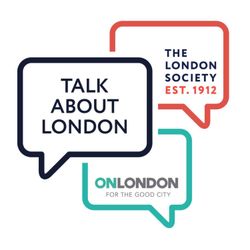
Talk About London | The Southbank Centre - London’s favourite public space turns 75
35:47|London’s Southbank Centre isn’t just an iconic cultural landmark — it’s a living example of resilience, innovation, and community spirit. In this episode, Elaine Bedell, CEO of the Southbank Centre, reveals how this historic space is navigating today's funding crisis, shifting public priorities, and the urgent need for capital repairs. From pandemic survival strategies to celebrating 75 years of cultural impact, Elaine shares the invisible architecture behind one of the world’s most beloved arts hubs.Discover how the Southbank Centre’s unique leasehold, owned by the government but operated by the community, shapes its future. Elaine uncovers ambitious plans to blend big cultural moments like Danny Boyle’s upcoming anniversary event with grassroots engagement, including skateboarding histories and local poetry tours. She explains why London’s arts infrastructure is vital not only for tourism and identity but as an emotional anchor—especially in a time when political narratives overlook its importance.You’ll learn about the critical need for capital investment in heritage buildings that serve millions annually—buildings that have stood since 1951 but are now facing leaks, structural decay, and outdated infrastructure. Elaine highlights how a thriving capital fuels regional arts, promotes social cohesion, and offers soft skills that transform individuals and communities alike.Perfect for arts administrators, city planners, cultural advocates, and anyone curious about how cultural spaces sustain and reinvent themselves in challenging times, this episode offers a blueprint for preserving public treasures that make cities human, vibrant, and resilient.Join us for a compelling look at how London’s cultural heartbeat continues to beat strong — through innovation, collaboration, and unwavering community spirit.Timestamps:00:00 - Introduction to Southbank Centre's legacy and significance02:15 - Elaine Bedell's journey to CEO and initial impressions05:00 - Funding challenges and the impact of government cuts08:50 - Pandemic response and organizational resilience13:00 - The cultural role of the Royal Festival Hall and public spaces17:00 - Need for capital refurbishment and infrastructure concerns21:20 - Collaboration with skateboarders and community relations24:30 - Footfall, tourism, and the Centre’s national and international reach28:45 - Celebrating the 75th anniversary with Danny Boyle and upcoming events32:00 - Interconnection between London and regional arts initiatives33:45 - The debate on regional funding and London’s cultural importance35:30 - Reflections on London’s Olympic legacy and community pride36:30 - Personal reflections from Elaine about her role and challenges37:00 - Closing thoughts and upcoming celebrationsResources & Links:Southbank Centre Official WebsiteDanny Boyle’s Creative WorkRoyal Festival Hall - Grade I Listed BuildingNational Poetry LibraryLondon SocietyConnect with Elaine Bedell:LinkedInTwitter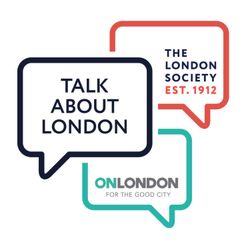
Talk about London | How did we get in this housing mess?
38:56|In this episode of Talk About London, hosts Leanne Tritton, The London Society and Dave Hill, OnLondon discuss the ongoing housing crisis in London with guest Rowan Moore, renown journalist, architecture critic and author. They explore the historical context of the crisis, the role of government in providing affordable housing, and the need for innovative solutions. The conversation emphasizes the importance of viewing housing as a social good and the necessity of rethinking current policies, including the right to buy. The episode also touches on the challenges of micro living and the potential for repurposing existing buildings to address housing shortages.TakeawaysLondon's housing crisis is deeply rooted in historical policies.The current market is failing to provide affordable housing solutions.Public intervention is necessary to address the housing emergency.Housing should be viewed as a social good, not just a commodity.Innovative strategies are needed to utilize existing housing effectively.The right to buy policy may need to be suspended to address housing needs.New towns and greenbelt developments are long-term solutions, not quick fixes.Micro living is not a sustainable solution for housing shortages.Tax incentives could help shift wealth towards affordable housing initiatives.Community engagement is crucial in reshaping housing policies.titlesReshaping London's Housing LandscapeThe Crisis of Affordability in LondonSound Bites"We need to see housing as a social good.""New towns have never happened quickly.""Micro flats are very suspect."Chapters00:00Introduction to London's Housing Crisis01:17Understanding the Roots of the Housing Emergency06:56Exploring Solutions: Public Housing Models09:57The Role of Taxation and Financial Incentives16:31New Towns and Greenbelt Development20:01Housing as Social Infrastructure25:37Reassessing Right to Buy and Private Development29:19Funding Housing Solutions32:36Repurposing Existing Buildings for Housing39:18The Debate on Micro LivingkeywordsLondon housing crisis, affordable housing, public intervention, housing solutions, property market, social infrastructure, housing policies, government role, housing investment, micro living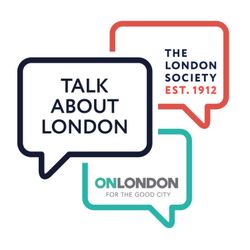
Talk About London | What does the rest of the world think about London?
43:57|In this episode of Talk About London, hosts Leanne Tritton, The London Society and Dave Hill, OnLondon engage with Professor Greg Clark to explore the global perception of London. They discuss the city's historical significance, its challenges including Brexit and COVID, and the unique issues it faces compared to other major cities. The conversation also touches on London's reputation for crime and housing affordability, its status as a safe haven city, and the importance of government support. Ultimately, they reflect on the London Promise and the need for a balanced approach to growth and equity in the capital.TakeawaysLondon is a city that almost everybody has an opinion on.It has been a leading city in the world for almost 500 years.London's challenges are unique compared to other cities.Brexit and COVID have had significant impacts on London.London's housing affordability crisis is common among successful cities.The perception of crime in London is influenced by media reporting.High net worth individuals are still attracted to London.The UK government has not consistently supported London.The London Promise is becoming harder to keep for many.There is a need for better organization of the Greater Southeast region.titlesWhat the World Thinks About LondonLondon's Global Reputation: A Deep DiveSound Bites"London's challenges are quite unique.""London has a safe haven status.""We need to tackle housing affordability."Chapters00:00Introduction to London and Its Global Perception02:54London's Historical Significance and Global Recognition06:12Challenges Facing London: Brexit, COVID, and Financial Crisis08:53Perceptions of Crime and Housing Affordability in London12:03Safe Haven Cities: London's Competitive Landscape15:06The London Promise: Opportunities and Challenges17:54The Role of Government in Supporting London20:50The Future of London: Balancing Growth and Equity23:58Soft Power and Cultural Influence of London26:53Conclusion: The Path Forward for LondonkeywordsLondon, global perception, challenges, Brexit, COVID, housing, crime, safe haven, soft power, cultural influence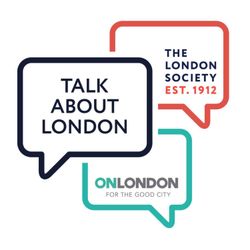
Talk About London – Architecture and What Will London Look Like in the Future
34:59|In this episode of Talk About London, Leanne Tritton, London Society and Dave Hill, OnLondon talk with Muyiwa Oki, the youngest-ever President of the RIBA, about the evolution of architecture — and what London might look like in the future.They discuss whether the age of glass and steel is coming to an end, the rise of sustainable materials, and the collaboration between architects and scientists that could shape a zero-carbon future for London’s built environment.Highlights:The dominance of glass and steel is being re-evaluated.Innovation and sustainability now drive design thinking.Material scientists are key to shaping the next generation of buildings.Zero-carbon concrete and steel are emerging.Collaboration across disciplines is redefining modern architecture.Chapters:00:00 – Introduction to London’s Architectural Landscape00:34 – Challenges Facing the Architecture Profession00:47 – Conclusion and Future Outlook #Architecture #London #Design #Innovation #Sustainability #RIBA #UrbanFuture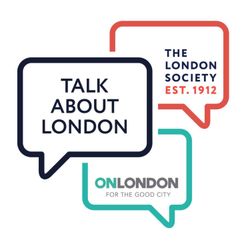
Talk About London | Old Oak Common and Park Royal - London's Regeneration Giant
37:47|In this episode of Talk About London, Leanne Tritton, The London Society and Dave Hill, OnLondon discuss the Old Oak and Park Royal Development Corporation with its chair, Dame Karen Buck. The conversation covers the current state of the development, its significance for London's future, the importance of food production in Park Royal, the role of railway infrastructure, procurement partnerships, community benefits, sustainability efforts, and lessons learned from past regeneration projects. Buck emphasizes the need for flexibility in housing plans and the commitment to providing affordable homes while ensuring local communities benefit from the development.TakeawaysThe Old Oak and Park Royal area is crucial for London's future.The development aims to create 25,000 homes and economic opportunities.Park Royal is responsible for a third of London's food production.Sustainability is a key focus in the development plans.HS2 will enhance connectivity but is not a prerequisite for development.Procurement partners will be sought to assist in building homes.Local employment opportunities are a priority for the community.The development will include a mix of housing types and tenures.Lessons from past regeneration projects will inform current strategies.Flexibility in planning is essential to adapt to future needs.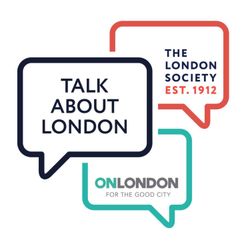
Talk about London |The State of Our Streets
38:18|In this episode, hosts Leanne Tritton, Chair of The London Society, and Dave Hill, founder and editor of OnLondon, are joined by Nicholas Boys-Smith, Chair and founder of Create Streets. Together they explore the state of London’s streets — from rubbish and “street scars” to the vital role they play in health, community life, and civic pride — and discuss what can be done to make them cleaner, safer, and more welcoming for everyone.Episode Running Order & Timestamps0:00 – 2:00 | IntroductionLeanne and Dave set the scene: why the condition of London’s streets matters for everyday life, civic pride, and wellbeing.2:00 – 4:00 | Guest IntroductionNicholas Boys Smith is introduced. He explains why human-scale, beautiful streets matter so much to how we experience the city.4:00 – 10:00 | Why Streets MatterHow the design and upkeep of streets affect physical and mental health, mobility choices, and daily joy.10:00 – 20:00 | High Streets and CommunityThe role of high streets as social spaces and economic lifelines. How tidy, well-managed streets encourage local pride and prosperity.20:00 – 30:00 | Challenges and SolutionsRubbish, commercial waste, potholes, graffiti, and clutter — what’s going wrong? Nicholas highlights practical solutions, from better waste management to community-led action.30:00 – 40:00 | Cultural and Historical ContextLondon’s historic struggles with dirty streets and how civic attitudes compare to other cities around the world.40:00 – 50:00 | Social and Political ImplicationsHomelessness, cycling culture, and political responsibility. Should London have a city-wide “clean streets” strategy?50:00 – End | ConclusionA reflection on the importance of clean, welcoming streets. Call to action for communities, councils, and politicians to put streets at the heart of London’s future.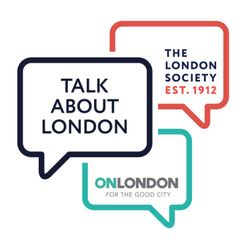
Talk About London | Planning Basics
46:42|Hosts Leanne Tritton, The London Society and Dave Hill, OnLondon, as they delve into the intricacies of London's planning system with planning expert Mike Kiely. Discover how planning impacts housing, infrastructure, and urban development in the capital city. This episode demystifies the planning process, explores the role of local councils, and discusses the influence of the Mayor of London.Timestamps:00:00 - Introduction by Leanne Tritton and Dave Hill 02:15 - The Basics of the Planning System 05:30 - Mike Kiely on Planning Myths and Realities 10:45 - The Role of Planning Officers vs. Planning Committees 15:20 - Zoning Plans vs. Discretionary Systems 20:00 - Community Engagement in Planning 25:30 - The Mayor of London's Influence on Local Plans 30:45 - Challenges and Future of London's Housing Needs 35:00 - The Role of AI in Planning Departments 40:00 - Closing Thoughts and Key TakeawaysHashtags: #LondonPlanning #UrbanDevelopment #Podcast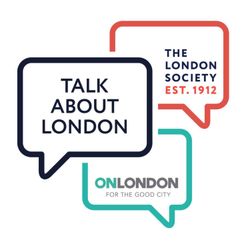
Talk About London| Can Wimbledon expansion make everyone a winner?
31:51|Explore the future of world renown Wimbledon in this episode of "Talk About London." Hosts Dave Hill, OnLondon and Leanne Tritton, The London Society are joined by Heather Topel, Estate Director for the All England Club, to discuss the ambitious expansion plans that promise to transform the iconic venue. Discover how the development of 38 new grass courts and a 27-acre public park will enhance the Wimbledon experience, offering significant benefits to both the local community and the broader public. Tune in to learn about the balance between tradition and innovation, and the exciting future that lies ahead for this world-renowned sporting event.Key Takeaways:Wimbledon's expansion includes 38 new grass courts and a 27-acre public park, enhancing both the venue and community access.The development aims to balance tradition with innovation, maintaining Wimbledon's iconic status while modernizing its facilities.Significant economic benefits are expected, with job creation and increased public access being key components of the plan.Environmental improvements, such as increased biodiversity and new public spaces, are integral to the project's success.Community concerns are being addressed through careful planning and engagement, ensuring a positive impact on local residents.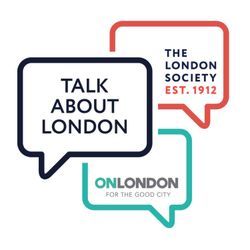
TFL - One of London's biggest landowners
46:16|In this episode of Talk About London, Leanne Tritton and Dave Hill's guest is Graeme Craig, the chief executive of Places for London, to discuss the evolution of Transport for London's (TfL) land management strategy. They explore the establishment of Places for London, its role in housing development, and the importance of joint ventures with commercial partners. Graeme shares insights on major projects, the shift from car parks to housing, and the significance of overstation developments. The conversation also touches on affordable housing targets, community engagement, and the challenges faced in local development plans, particularly in South Kensington and Seven Sisters. Additionally, Graeme highlights the importance of supporting small businesses and the training initiatives for construction skills, emphasizing the need for community involvement in shaping London's future.KeywordsTransport for London, Places for London, housing development, community impact, affordable housing, joint ventures, overstation development, retail spaces, small businesses, construction skillsTakeawaysPlaces for London was established to manage TfL's land more effectively.TfL's previous strategy of selling surplus land was changed to retain and develop it.Joint ventures with commercial partners are crucial for maximizing development potential.TfL aims to deliver affordable housing in line with mayoral objectives.Community engagement is essential in understanding local needs and priorities.Overstation developments can provide significant benefits, including student accommodation.The importance of branding Places for London to clarify its mission and objectives.TfL has achieved a 56% affordable housing target on completed sites.The shift from car parks to housing reflects changing priorities in London.Training initiatives for construction skills aim to diversify the workforce and engage communities.Chapters00:00 Introduction to Places for London01:14 The Evolution of TfL's Land Strategy05:13 Development Partnerships and Joint Ventures10:28 Current Projects and Future Aspirations14:20 The Housing Crisis and Community Needs18:52 Overstation Developments and Their Impact22:50 The Importance of Naming and Community Engagement27:51 Introduction to TfL Development Challenges29:13 South Kensington Station Development34:40 Seven Sisters Market and Community Engagement38:28 Retail Spaces and Small Business Support42:58 Construction Skills and Community Involvement29:13South Kensington Station Development38:28Retail Spaces and Small Business Support42:58Construction Skills and Community Involvement